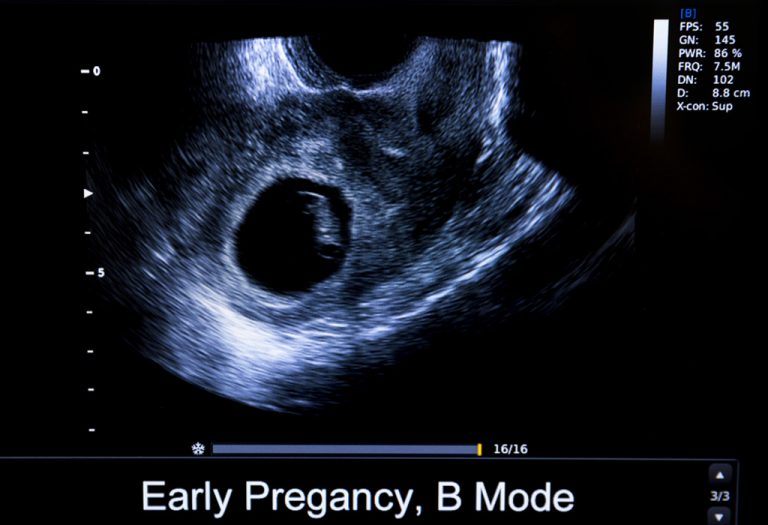Carpal Tunnel Syndrome During Pregnancy – Causes, Symptoms & Treatment
During pregnancy, many women experience unexpected physical changes. Some of these are natural and form a normal part of the pregnancy journey, while others may require medical attention. One such lesser-discussed but fairly common condition is Carpal Tunnel Syndrome (CTS). Hormonal fluctuations, fluid retention, and increased pressure during pregnancy can contribute to its development, often making everyday tasks uncomfortable. In this article, we will discuss Carpal Tunnel Syndrome during pregnancy, what it is, how it affects expectant mothers, and the treatment options available. But before that, let’s understand where the carpal bones are located.
The hollow space formed by the carpal bones of the wrist below and the fascia (thin shiny envelope covering the muscle tendons) above is known as the carpal tunnel (1). These bones enclose the median nerve, the ulnar nerve and the flexor tendons of the forearm.
What Is Carpal Tunnel Syndrome (CTS)?
The median nerve of the hand is responsible for the sensory supply of the lateral half of your palm (flexor aspect), while its motor innervation controls most of the flexor muscles of the forearm. Conditions like inflammation, fluid retention or trauma to the arm can lead to increased pressure within the carpal tunnel. This may, in turn, compress the median nerve, which can lead to sensory or motor symptoms in the hand, including tingling, numbness, pain and weakness of grip. This group of symptoms is collectively known as carpal tunnel syndrome (CTS) (2).
When Does the Carpal Tunnel Syndrome Start During Pregnancy?
Carpal Tunnel Syndrome can develop at any point during pregnancy, but experts at UT Southwestern Medical Center note that many women begin noticing symptoms after 30 weeks of gestation, in the late third trimester (3). This is when hormonal changes and fluid retention are at their peak, leading to swelling that puts extra pressure on the median nerve in the wrist. Some women may notice symptoms early on, while others experience them closer to the later stages of pregnancy.
What Causes Carpal Tunnel Syndrome in Pregnant Women?
Carpal Tunnel Syndrome in pregnancy is mainly caused by fluid retention, hormonal changes, and increased pressure on the median nerve in the wrist. It may also be associated with various systemic inflammatory disorders.
Here are some of the conditions that can be the causes of carpal tunnel syndrome in pregnancy:
1. Diabetes Mellitus
It is the most common autoimmune endocrine disorder associated with weight gain and fluid retention, which can lead to carpal tunnel syndrome as one of its local complications, besides affecting the eyes and the kidneys. Diabetes in a pregnant woman doubles the chances of carpal tunnel syndrome owing to the cumulative retention of fluid (4) (5).
2. Hypothyroidism
This is also a state of reduced metabolism. Hence, excessive weight gain is due to fluid retention.
3. Hypertension
Excessive blood pressure leads to leakage of fluid into the third space or out of the blood vessels. This fluid then accumulates in the loose cutaneous tissues.
4. Autoimmune Disorders
Some disorders, like Rheumatoid arthritis, Gouty arthritis, and Systemic lupus erythematosus, cause joint swellings and effusions.
Local trauma or fractures of the bones forming the wrist joint, like Colle’s fracture, which commonly occur in postmenopausal women, can lead to local inflammation and result in carpal tunnel syndrome.
5. Excessive Joint Movement
Carpal tunnel syndrome is worsened by repeated and excessive joint movements. Constant use of the joint hampers the resolution of inflammation and, hence, prevents healing. Professions like sports, including tennis and badminton, musicians playing guitars or pianos, fine artists, hardware tools operators, etc., are at a higher risk due to excessive joint movement at the wrist.
Symptoms of Carpal Tunnel Syndrome in Pregnancy
Symptoms of carpal tunnel syndrome can easily be recognised by the patient herself, as the compression of the median nerve causes intense pain, tingling in the region of the hand supplied, sharp, dart-like pain from the wrist, weakness, and numbness (6).
Besides pain and tingling, the symptoms of carpal tunnel syndrome may be broadly divided into motor and sensory symptoms for simpler understanding (1).
1. Motor Symptoms
- These include the inability to make a fist, hold an object in the hand, or the clumsiness of the hand.
- Difficulty in doing daily chores, like brushing teeth, buttoning and unbuttoning clothes, holding a pen, etc.
- Difficulty in doing fine activities, like typing, sewing, doing artwork, etc.
2. Sensory Symptoms
- Loss of sensation in the region of the palm, which is supplied by the median nerve. The median nerve supplies the skin of the lateral three-fourths of the flexor aspect of the palm.
- Loss of skin creases and excessive susceptibility to burns and trivial traumas due to the reduced sensation.
Who Is at Risk of CTS?
Women are more prone to carpal tunnel syndrome than men. Pregnancy further predisposes women to this condition. Carpal tunnel syndrome is also more commonly diagnosed in patients between their thirties and sixties. According to a 2021 study published in The Archives of Bone and Joint Surgery, carpal tunnel syndrome (CTS) is the second most common musculoskeletal problem pregnant women face after low back pain (7).
It is also more common with certain lifestyle factors like high-fat diet and obesity, sedentary habits, cigarette smoking, alcohol consumption, jobs that require prolonged hours of immobilisation and repeated and excessive joint movements.
People suffering from chronic diseases like diabetes mellitus, hypertension, thyroid disorders and autoimmune diseases, including arthritis, are at increased risk for carpal tunnel syndrome.
Diagnosis of Carpal Tunnel Syndrome While Pregnant
Diagnosing Carpal Tunnel Syndrome during pregnancy involves a careful evaluation to distinguish it from other conditions that may cause similar symptoms. Doctors typically rely on a combination of medical history, physical examination, and specialised tests to confirm the diagnosis (8).
- Physical Examination: Examination of all the joints of the upper limbs, including the shoulders, elbows, and wrists, will determine and rule out any other cause of nerve compression at various levels in the course of the nerve. Any local swelling, redness or deformity can be observed, while pain on touching indicates tenderness. Tests for sensation over the skin of the palm and motor examination, including the object holding test, can be useful for the diagnosis.
- Nerve Conduction Studies (NCS): NCS definitively test carpal tunnel syndrome in pregnancy. This test measures the velocity and amplitude of an electrically transmitted impulse through the nerve being tested. A delay in the conduction indicates nerve damage and hints towards carpal tunnel syndrome in the case of the median nerve of the hand.
Treatment of Carpal Tunnel Syndrome in Pregnancy
Medical treatments are mostly conservative and include the following options:
- Support: Splinting of the affected wrist during nighttime for about three weeks (9).
- Non-Steroidal Anti-inflammatory Drugs (NSAIDS): Analgesics like diclofenac and ibuprofen significantly reduce the inflammation and hence relieve the pain. Injectable or oral diuretics reduce fluid and swelling and provide symptomatic benefits (10).
- Anti-Convulsants: Gabapentin and Pregabalin are effective in reducing pain.
- Local Steroid Injection: Injecting a steroid reduces inflammation and has significant benefits in cases not relieved by NSAIDs.
- Hormonal Injections: Local Progesterone injection may also help treat carpal tunnel syndrome.
- Surgery: Surgical options are considered for patients who have severe carpal tunnel syndrome and do not respond to medical management (9). Surgically releasing the transverse ligament of the wrist has proven to be effective in up to 85% of cases. The procedure has a low rate of complications and is increasingly being practised.
Contemporary therapies are also practised as an add-on or stand-alone therapy in a few cases. These include:
- Yoga: Yoga can be of significant help in relieving pain and, as informed earlier, is a good lifestyle habit.
- Acupressure: Applying controlled pressure on certain spots over the palm can significantly reduce the pain and inflammation.
How Can Carpal Tunnel Syndrome Be Prevented in Pregnancy?
While it may not always be possible to completely prevent Carpal Tunnel Syndrome during pregnancy, simple habits and lifestyle adjustments can greatly lower the risk or reduce its severity. Here are some helpful tips for prevention (11):
- Maintain good posture to reduce pressure on the wrists and shoulders.
- Avoid repetitive wrist movements whenever possible.
- Take frequent breaks from activities like typing, cooking, or writing.
- Keep wrists in a neutral position instead of bending them too far up or down.
- Use ergonomic support such as cushioned keyboards or wrist rests.
- Sleep with wrists elevated or wear a soft wrist splint at night.
- Reduce salt intake to minimise fluid retention and swelling.
- Do gentle wrist and hand stretches to improve circulation.
- Apply warm or cold compresses if you feel discomfort starting.
- Stay physically active with light exercises approved by your doctor to promote overall circulation.
Natural Remedies for Carpal Tunnel Syndrome During Pregnancy
Many women prefer to try safe, natural methods to ease Carpal Tunnel Syndrome symptoms during pregnancy instead of relying solely on medication. The self-help and natural remedies for carpal tunnel syndrome listed below may help relieve the pain:
- Herbal Therapy: Applying cabbage leaves over the affected joint is believed to reduce inflammation. This remedy, however, may or may not work in all cases. You may speak to your doctor for further guidance or remedies.
- Hydration: Adequate hydration may help relieve the pain. However, over-hydration must be prevented.
- A Healthy Diet: Follow a balanced diet rich in Vitamin A, B complex and Vitamin C and low in uric acid.
- Exercise: Regular exercise with intermittent rest and massage of the wrist while at work can also help provide some relief from the pain.
- Massage: Regular exercise with intermittent rest and massage of the wrist while at work helps relieve symptoms. Running the hand under cold water or using a cold compress can also help relieve the symptoms (12).
- Yoga: Yoga can be of significant help in relieving pain and is a good lifestyle habit.
- Acupressure: Applying controlled pressure on certain spots over the palm can significantly reduce the pain and inflammation.
- Splint: Wearing splints at nighttime will keep the wrist straight and also help relieve the pain (13).
- Cod Fish Oil: Cod fish oil contains omega-3 fatty acids that have anti-inflammatory properties and can help reduce numbness and pain due to carpal tunnel syndrome.
Alternative Therapies for Carpal Tunnel Syndrome in Pregnancy
In addition to natural remedies and lifestyle changes, some alternative therapies may help ease the symptoms of Carpal Tunnel Syndrome during pregnancy. Here are a few therapies that can help relieve the symptoms safely:
- Acupuncture and Acupressure: Applying gentle pressure to specific wrist points, such as the pericardium point six, may help reduce pain and tingling. Some studies suggest this can even be more effective than wrist splints.
- Aromatherapy: Warm or cool compresses infused with essential oils like cypress or lemon may bring relief. However, it’s important to note that not all essential oils are safe during pregnancy, for example, juniper berry oil should be avoided as it can affect the kidneys.
- Osteopathy: As part of chiropractic care, osteopathy focuses on improving alignment of the muscles, joints, and ligaments. While it may not directly cure carpal tunnel syndrome, it can ease pressure and discomfort in the wrists and hands.
- Reflexology: This therapy involves pressing certain points on the feet that correspond to different parts of the body. Although there isn’t strong scientific proof that it helps with carpal tunnel syndrome, many women find it soothing and relaxing.
When to Consult the Doctor?
Mild swelling is common in pregnancy, so it may be easy to overlook. However, you should reach out to your doctor if you notice any of the following:
- Unusual or excessive swelling in your hands or feet.
- Severe or ongoing wrist pain.
- Pain that continues to get worse.
- Symptoms that don’t improve even six weeks after childbirth.
FAQs
1. Can Carpal Tunnel Syndrome come back in future pregnancies?
Yes, if you had Carpal Tunnel Syndrome in one pregnancy, it can happen again in future pregnancies. This is more likely if you experience a lot of swelling or fluid retention.
2. Can Carpal Tunnel Syndrome affect my baby?
No, CTS affects only the mother’s nerves and wrist function. It does not pose any direct risk to the baby.
Carpal Tunnel and pregnancy can be a significantly distressing experience. Prompt recognition of symptoms, timely workup and diagnosis can help treat the condition. Initial non-pharmacological measures involve physiotherapy, yoga and lifestyle changes including diet and moderate daily exercise. This can lead to symptom reduction and general well-being. Although rarely reported, wrongly diagnosed or inadequately treated carpal tunnel syndrome may over time lead to permanent nerve damage resulting in a handicap and ultimately loss of hand function.
Also Read:
HELLP Syndrome in Pregnancy
Mirror Syndrome during Pregnancy
Couvade Syndrome in Pregnancy
Carpal Tunnel Syndrome in Pregnancy
Irritable Bowel Syndrome (IBS) in Pregnancy
Was This Article Helpful?
Parenting is a huge responsibility, for you as a caregiver, but also for us as a parenting content platform. We understand that and take our responsibility of creating credible content seriously. FirstCry Parenting articles are written and published only after extensive research using factually sound references to deliver quality content that is accurate, validated by experts, and completely reliable. To understand how we go about creating content that is credible, read our editorial policy here.
1. NHS Borders – Carpal tunnel syndrome during pregnancy
2. Pregnancy Birth and Baby – Carpal tunnel syndrome and pregnancy
3. UT Southwestern Medical Center – Carpal tunnel syndrome and pregnancy go hand in hand
4. NHS South Tees Hospitals – Carpel tunnel syndrome (CTS) in pregnancy
5. PubMed Central – Management of “De Novo” Carpal Tunnel Syndrome in Pregnancy: A Narrative Review
6. The Royal Women’s Hospital – PREGNANCY-RELATED CARPAL TUNNEL SYNDROME
7. PubMed Central – Pregnancy-related Hand and Wrist Problems
8. Cleveland Clinic – Carpal Tunnel Syndrome
9. Johns Hopkins Medicine – Carpal Tunnel Syndrome
10. National Library of Medicine – Carpal Tunnel Syndrome
11. NYU Langone – Preventing Carpal Tunnel Syndrome
12. Cork University Maternity Hospital – Pregnancy related Carpal Tunnel Syndrome
13. Penn Medicine Lancaster General Health – Carpal Tunnel Syndrome During Pregnancy



































